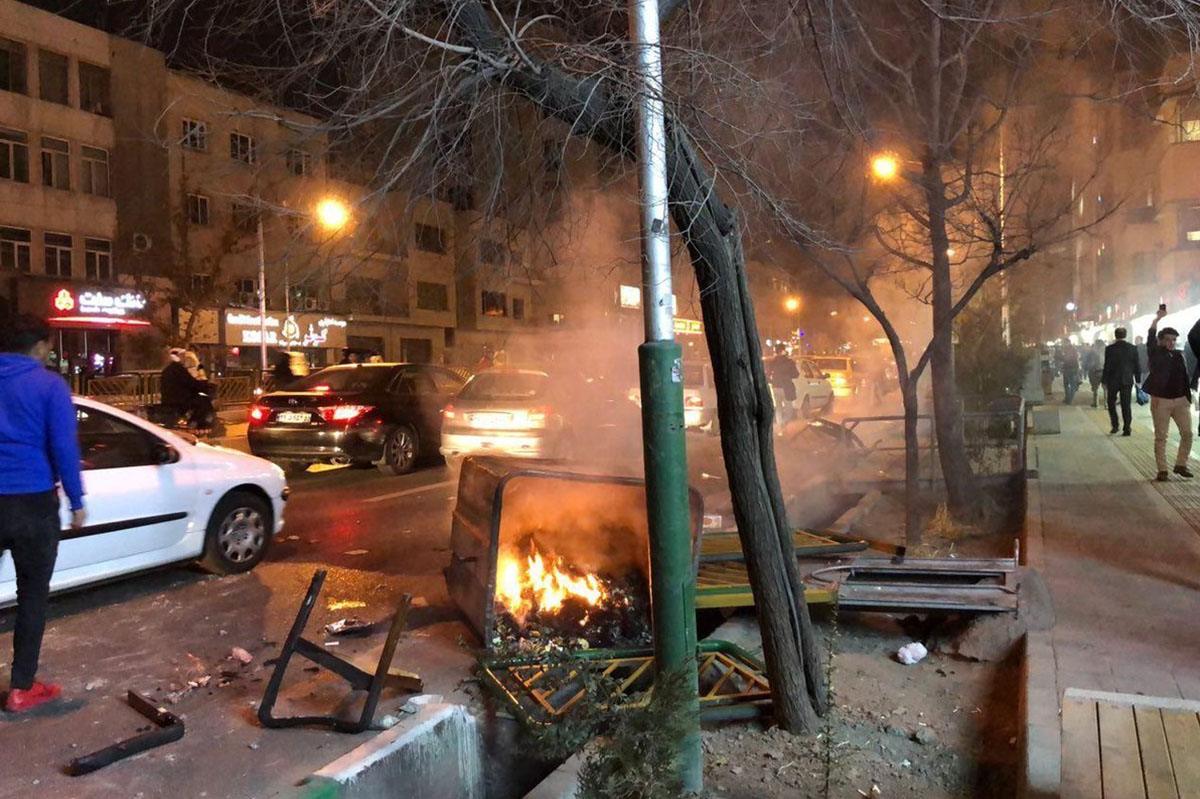KRG rejects Iran accusation that anti-government protests staged from Erbil by CIA
The Kurdistan Regional Government has rejected an accusation made by a senior Iranian official who blamed the recent deadly protests in the country on a US-sponsored intelligence operation staged from the Kurdish capital of Erbil in cooperation with “Barzanis” and various Iranian opposition parties.
“We reject this baseless accusation,” Safeen Zidazyee, the KRG spokesperson said in a statement on Saturday evening.
He said that the Kurdish Region has been a “factor of stability,” and that it has never allowed any act from the Kurdistan Region to undermine stability in the neighbouring countries.
The KRG wants to have friendly relations with each and every country based on mutual interests, the KRG official said, “such remarks [made by the Iranian official] do not serve neighbourly ties and the relationship between the Kurdistan Region and the Islamic Republic.”
Mohsen Rezaee, who heads an advisory board that reports to the Supreme Leader of Iran, claimed on Saturday that they have intelligence showing the US Central Intelligence Agency (CIA ) has been working to stage the anti-government protests for some time now.
He said that several months ago the “head of the special operations desk of CIA in Erbil” formed a team with close associates of the former Iraqi dictator Saddam Hussein, “a representative from Saudi Arabia, Barzanis, and Munafiqeen [Mujahideen-e-Khalq]” to stage the protests that took place in Iran since late December, Iranian Tasnim news agency reported.
Iranian officials used the term “Barzanis” in reference to the Barzani family who control the ruling Kurdistan Democratic Party (KDP) and hold several senior positions within the Kurdistan Regional Government including the prime ministry.
Mujahideen-e-Khalq (MEK), a named terrorist organization by Iran, is an opposition party whose members are mainly stationed in Europe such in France, and the United States. The party advocates for a regime change in Iran.
The United States is yet to comment on the accusations.
The White House has called the protest that affected more than a dozen Iranian cities “spontaneous.” President Donald Trump, and other US leaders, have expressed their support for the anti-government protests on an almost daily basis.
Rezayee, the Iranian official, claimed that the alleged US-sponsored operation was planned in three stages: staging protests across the country in such a way that the Iranian government will lose control over the urban areas, followed by armed conflict to be instigated by MEK fighters inside Iran, and finally for the United States to use the chaos caused to justify humanitarian related sanctions against the Iranian government through the UN Security Council.
The UN Security Council met on Friday to discuss the protests in Iran at the request of the United States. Iran, and Russia condemned the move as they called it an interference in the internal affairs of the Islamic Republic.
The Supreme Leader Ali Khamenei and President Hassan Rouhani previously both have blamed the protest on the country’s “enemies” that include the United States, Saudi Arabia and Israel.
Rouhani on Monday argued that the Iranian people proved to the world they are united when they headed to the polls in May for presidential elections, a show of national unity that is disliked by Iran’s enemies, he said, claiming that foreign nations were seeking to destabilize Iran.
“They said in clear terms that ‘we will drag these problems into Tehran,’ ” Rouhani said, a reference to threats made by Saudi officials.
Shiite-dominated Iran and the Sunni-dominated Saudi Arabia are regional rivals who generally support opposing sides in regional nations like Syria, Iraq, Lebanon, and Yemen.
Iranian officials including military commanders have called for the Saudi consulate in Erbil be closed. The KRG strongly rejected the notion in January 2017.
At least 21 people were killed in anti-government protests across Iran during which tens of thousands of people protested against high unemployment, inflation and expensive food items.
Rouhani, among others, admitted that some of the demands expressed were rightful including a call for improving the economic situation, wide-spread corruption, and freedom. He, however, maintained that the majority of people still support the state as manifested by pro-government rallies in different cities.
Some of the anti-government protesters chanted against the Supreme Leader and the President as they called for the ousting of the Islamic government.
Media access in Iran is highly restricted, so it is not clear whether the protesters have ended. Iranian officials claimed as early as Thursday that the protests were over.
Source: Rudaw

